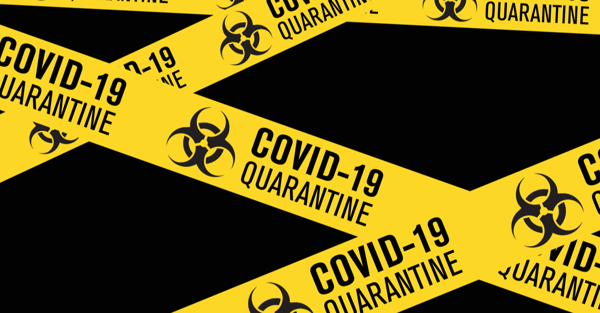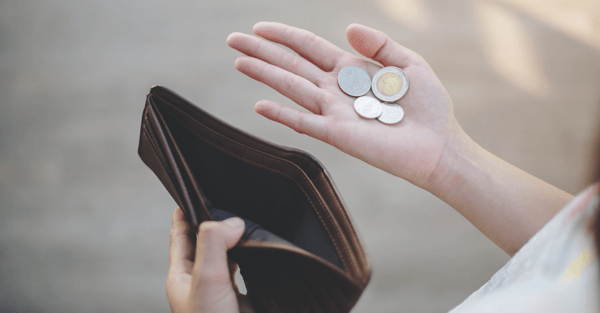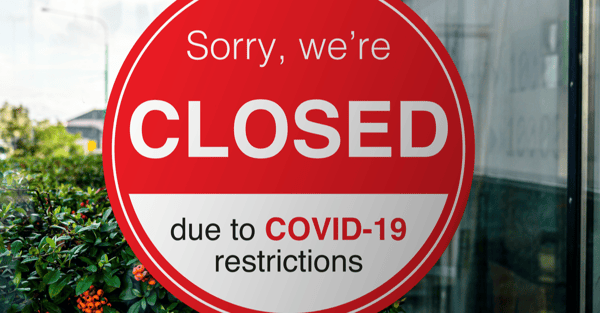The coronavirus pandemic continues to batter many countries all over the world, resulting in global cases of more than 2.4 million and a death toll of over 170,000 at the time of writing.
Among the countries affected, the United States has the most confirmed cases (746,379) and the highest number of deaths (41,379) as of Sunday, 19 April 2020. Followed by Spain (195,944 cases/20,453 deaths), Italy (178,972 cases/23,660 deaths), France (152,996 cases/19,744 deaths), and Germany (144,184 cases/4,586 deaths).
Despite being in the top five, Germany, Spain, and Italy are taking steps to lift the coronavirus restrictions, restarting some non-essential industries.
The relaxation came as the number of infections decreased.
This means these countries are likely to move from total lockdowns (if implemented) to partial shutdowns or localised restrictions.
How do these measures differ from one another?

Lockdowns – Most aspects of daily life are restricted, with citizens discouraged from taking public transportation. Most establishments are closed and people are only permitted to leave their homes for a valid reason such as travelling to and from work or shopping for essentials.
Partial shutdowns – Under this restriction, shopping centres are closed but food shops and firms that provide essential services remain open. Only essential travel is allowed.
Localised restrictions – Implemented in response to the coronavirus crisis at the local level. This includes requiring citizens to work from home, avoiding large gatherings, and only travelling when necessary.
How these restrictions are defined differs from one country to another. As of three days ago, a third of the world's population remains on lockdown due to coronavirus. While some countries are easing restrictions, others are implementing stricter rules.
Many fear that lifting lockdown measures to prevent the spread of coronavirus is premature. But governments are now faced with a difficult decision to choose between the health and safety of its people and the economy.
How COVID-19 restrictions are reshaping the economy...or is it disfiguring?
The suspension of economic activity is especially disastrous in poor countries. In places with mass poverty, the common sentiment is that they will die of starvation during a lockdown. It's either that or violate quarantine restrictions to feed the family.
For most countries in lockdown, business activity has ground to a halt, leaving little doubt of what the numbers will look like in terms of revenue, GDP growth, unemployment, and other financial and economic aspects.
Economists say the impact of coronavirus is more than just a standard downturn or a financial crisis. With the economy temporarily in a deep freeze, a huge decline in income, production, and spending is expected.
Then again, if lockdown or restrictions are not implemented, more people will get sick. A healthy economy is impossible without a healthy workforce.
Is there financial support available?

Many countries have rolled out stimulus packages to provide assistance to the tens of millions of people affected by this crisis.
The US has made stimulus payments of USD1,200 for most American adults, which is part of the economic relief plan amounting to USD2 trillion. Under the CARES (Coronavirus Aid, Relief, and Economic Security) Act, more support has been extended:
- Small businesses in the US can take advantage of USD367 billion in loans and grant programs.
- Unemployment benefits will be extended to gig workers, furloughed individuals, and freelancers. For four months, their benefits will be increased by USD600/week.
- Cash grants for payroll support will be provided for airlines (USD25 billion), air cargo carriers (USD4 billion), and airline contractors (USD3 billion).
- Large companies that receive government loans are also banned from buying back stocks within the term of their assistance and one year more.
France provided an aid package of €45 billion for workers and businesses. The finance minister promised more economic support to come.
Germany approved a €750 billion ($814 billion) stimulus package that has an allocation for business loans and for an increase in social spending at €600 billion and €156 billion, respectively.
Japan approved a stimulus package that is equivalent to 20% of its economic output. Out of the total ¥108 trillion ($990 billion), ¥39.5 trillion will be funnelled into direct fiscal spending.
Within the EU, debt and deficit requirements have been suspended by the European Commission to help members of the bloc that are less economically stable fight the COVID-19 pandemic. A €750 billion bond-buying scheme called the "Pandemic Emergency Purchase Program" has also been released by the European Central Bank to increase liquidity among EU members.
Mainland China has implemented several forms of financial support:
- ¥500 billion (€65 billion; $71 billion) have been released by the central bank to increase available bank loans.
- Bank reserve requirements have been reduced.
- Interest rates for large corporations and banks were cut.
In addition, Beijing asked landlords of commercial properties to reduce rent and for banks to lend a hand to businesses by extending loan terms.
On the personal finance front: What more can individuals do themselves to protect their wealth?

Whether you still continue to earn or are experiencing a loss of income, it's vital that you keep your finances in check. Some smart moves you can make include:
- Finding ways to pay your bills, auto loans, credit cards, and other financial obligations in the midst of an economic crisis.
Check out: How you can adjust your financial plans during these difficult times.
- Working with creditors and debt collectors to reduce interest rates or to negotiate the payment terms.
- Discover ways to earn online and make money during the quarantine period.
- Check out avenues for passive income and start building one to protect yourself from future pandemics or simply retire in luxury.
Feeling the bite of business closures: How to remain buoyant in the midst of the coronavirus pandemic

If employees are looking at a bleak future, companies are feeling the burn of coronavirus just as much. Some of these businesses are no longer making revenue but are asked or mandated to pay employees a certain amount.
This is why many have opted for labour cuts rather than go under completely. Well, there are other things a business owner like you can do to avoid a repeat of your critical situation and to survive this crisis.
Create an emergency plan
It should outline the various steps your company will take during an outbreak to protect the business and your employees.
An emergency preparedness plan would include:
- Documenting all assets and valuables
- Protecting all interests with the appropriate insurance
- Keeping a backup of all company records
- Investing in supplies essential in an emergency situation, such as non-perishable food and first aid kits
- Ensuring employees are aware of the emergency plan so they can proceed as planned
Too late for that now? Well, it's not too late to prepare for future pandemics. Coronavirus is just one of the many, after all.
Allow employees to work from home
Or, at least, establish a policy for this type of alternative work arrangement. With this measure in place, you can also develop guidelines on who is eligible to work from home and the remote procedures and rules that must be observed.
Look for federal relief and take advantage of them
Most stimulus packages rolled out include financial assistance to help businesses cover expenses. Find out what your government is doing for business owners like you.
Rethink or reinvent the way you do business
Coronavirus may be the source of a major global crisis, but it comes with opportunities, too. A lot of companies struggling to stay afloat have retooled themselves to continue to generate income even when business closures are rampant.
The plan? To fill the shortage for alcohol, personal protective equipment (PPE), and other tools needed to combat COVID-19. This is the best reaction to the pandemic.
Gin distillery Shine Distillery & Grill, for example, is now producing hand sanitisers from the alcohol they used to make vodka.
Local entrepreneurs in Ontario have teamed up with the Wood Centre of the University of Guelph to make PPEs and medical equipment using 3D printing technology.
Chicago’s iPromo switched its promotional products for health-related goods sold online.
These companies managed to stop further layoffs or keep their business from plummeting into the deep end.
You can do the same if your business platform fits or has the ability to reinvent itself. Ask yourself, what can you do to create new ways to generate income with little capital or investment?
The world hopes to see the end of the coronavirus crisis soon. But no one can say for certain when or how it will happen. Lucky for other countries that have yet to report confirmed cases of COVID-19, but many suspect it is only a matter of time before these places become part of the statistics as well.
There are many ways to make sure you stay afloat in times of crisis, including through a recession-proof vehicle like Forex trading! Start trading and generating income with Fullerton Markets today by opening an account with us:
You might be interested in: How a Pandemic Changes Everything – from the Labour Market to Oil














